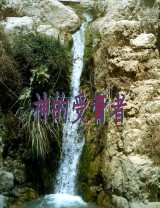撒母耳記上第二課:第八章至第十章
一。撒母耳記上八章:以色列人求撒母耳為他們立王
1. 撒母耳兒子品行如何?撒母耳那麼好,那樣愛神,關心群眾,加上撒母耳已經見過以利和他孩子的結局,您認為撒母耳的孩子怎麼會這樣呢?(撒母耳記上7:15-17會不會給我們一點暗示?)
2. 以色列的長老向撒母耳求什麼?他們要模仿其他的___。
3. 此要求使得撒母耳___,但是神對眾人的反應是什麼?
4. 請背誦神告訴撒母耳的話(8:7):“百姓向你說的一切話,你只管依從。因為他們不是厭棄你,乃是厭棄我,不要我作他們的王”。
5. 撒母耳如何描述國王即將會怎麼樣對待百姓?您認為,撒母耳所說的對不對?歷史上,其他國的王是否如此對待百姓?
6. 眾人非常理想化地說,“不然,我們定要一個王___ ___我們,使我們象列國___ ___,有王治理我們,統領我們,為我們___ ___”。
7. 神對撒母耳說:“你只管___ ___他們的話,為他們立王”。
二。撒母耳記上九章:撒母耳初次見掃羅
1. 掃羅父親名字叫做什麼?掃羅的一些特點是什麼?
2. 我們初次認識掃羅,他去哪裡,做什麼?
3. 6-7節:掃羅的僕人提出什麼建議?請說明“先知”和“先見”二詞的區別。
掃羅好象不知道撒母耳這個人,連撒母耳的名字掃羅都不知道;你是否以此為怪?為什麼?撒母耳記上的作者是否給讀者暗示說,掃羅的“屬靈根基”打得不夠深? 為什麼?掃羅和僕人怎麼樣才找到撒母耳的?
4. 神向撒母耳指示他什麼?
5. 請詳細的述說撒母耳和掃羅說話及吃飯的情況。
6. 20-21節:掃羅聽到撒母耳的話,心裡可能想了些什麼?
7. 最後,撒母耳說什麼話把掃羅留住?
三。撒母耳記上十章:撒母耳膏掃羅為王
1. 1節:請說明“膏”一字的含義。(參閱撒母耳記上2:10; 12:3; 24:6; 26:9, 11, 16; 撒母耳記下1:14, 16; 19:21; 22:51; 23:1; 詩篇2:2, 6。參看詩篇110篇; 以賽亞書61:1; 撒迦利亞書4:14; 馬太福音1:17; 路加福音1:31-33; 希伯來書7章等等。)

2. 撒母耳給掃羅一些“證明”(兆頭,記號,徵兆),使得掃羅相信神真的立了他為王。請把這些證據一個一個的寫下來。
3. 8節:除了些證據以外,撒母耳給掃羅一個“應許”,也給他一個“命令”。應許是什麼?命令是什麼?(注意:在聖經里,應許時常跟着命令。)
4. 9節:“掃羅轉身離別撒母耳,神就賜他一個___ ___。當日這一切兆頭都___ ___了”。由從此可知,當時神與掃羅同在,要賜福於掃羅。神為掃羅開了路,讓他做一位成功的國王。掃羅是否要成功,由誰來決定?
5. 9-13節:掃羅做了什麼事,使得認識他的眾人感到驚訝?
6. 撒母耳用什麼方法為以色列人選國王?可見,這是誰為他們揀選王?不是撒母耳,乃是___。
7. 不料!誰不見了?他在哪裡呢?他做什麼?
8. 25節:“撒母耳將國法對百姓說明,又記在書上,放在耶和華面前”。我想這本書不存在於今天,但是部分內容大概是摩西早告訴他們的列祖,記載在申命記17:14-20。請參閱。撒母耳要講清楚以色列的王和列國的王有所不同。誰才是以色列人真正的王呢?以色列國是一個“神權統治”的國家和民族。(英語是theoracy ;也翻譯為“神權政治”,“神權政體”或“僧侶統治”。)所以,王是先知或祭司“立”的;是先知或祭司代表神“膏”的。(因此,王被稱呼“耶和華神所膏者”。)在以色列國,王不是最高的權威;耶和華神為最高的權威。國王、先知和祭司都在神的統治,權利和掌權之下。可惜,很多王都會忘記這點。
9. 當時,所有人都支持掃羅做王嗎?不支持他是什麼樣的人呢?掃羅反應如何?
讀者:歡迎您把這篇短文下載,複印,用在您的《聖經》班裡。
圖片:我在以色列國的隱基底(En Gedi)照的圖片。I took this photo at En Gedi, in Israel.——©Edward Short
1 Samuel/02: Chapters Eight through Ten
1. Samuel 8: Israelites Ask Samuel for a King
1) What was the behaviour of Samuel’s sons? Given what we know about Samuel, how good a person he was, how he loved God and was concerned for the multitudes, plus the fact that Samuel saw what happened to Eli’s sons, why then do you think Samuel’s sons behaved as they did? (Does 1 Samuel 7:15-17 give us any hint?)
2) For what did the elders ask Samuel? Who did they want to imitate?
3) This request made Samuel ___; God however reacted in what way to the people?
4) Memorize what God said to Samuel (8:7): “Listen to all that the people are saying to you; it is not you they have rejected, but they have rejected me as their king.”
5) Describe what Samuel said that a king would do to the people. In your opinion, did Samuel describe the situation accurately? Historically speaking, did kings of other nations act this way toward their people?
6) The people spoke very idealistically: “No!” they said. “We want a king o___ us. Then we will be l___ all the other nations, with a king to lead us and to go out before us and f___ our battles.”
7) God spoke to Samuel and said, “L___ to them and give them a king.”
2.1 Samuel 9: Samuel Sees Saul for the First Time
1) The name of Saul’s father was ___. List some of Saul’s special features.
2) Where was Saul going, and what was he going to do, when we first meet him?
3) Vs. 6-7: What suggestion did Saul’s servant make? Explain the difference in “prophet” and “seer.” Do you find it strange that Saul, seemingly, did not know who Samuel was and didn’t even know Samuel’s name? Why? Is the author of 1 Samuel giving the reader a hint and saying that Saul’s “spiritual foundation” is not very deep? Why? How did Saul and his servant finally find Samuel?
4) What did God tell Samuel?
5) Explain in detail Samuel and Saul’s conversation and meal?
6) Vs. 20-21: What perhaps did Saul think when he heard what Samuel said?
7) At the end, what did Samuel say that kept Saul from leaving?
3. 1 Samuel 10: Samuel Anoints Saul King
1) Vs. 1: Explain the meaning of “anoint.” (See 1 Samuel 2:10; 12:3; 24:6; 26:9,11,16; 2 Samuel 1:14,16; 19:21; 22:51; 23:1; Psalms 2:2,6. See also Psalms 110; Isaiah 61:1; Zechariah 4:14; Matthew 1:17; Luke 1:31-33; Hebrews ch. 7, etc.)
2) Samuel gave Saul some “signs” (or proofs, etc), so he would know that God had actually made him the king. Write down each of these signs.
3) Vs. 8: Besides the signs, Samuel also gave Saul a “promise” and a “command.” What were these? (Note: In the Bible, promises are often accompanied by commands.)
4) Vs. 9: “As Saul turned to leave Samuel, God c___ Saul’s h___, and all these signs were f___ that day.” From this we can see that at that time, God was with Saul and wanted to bless Saul. God opened the way for Saul to be a successful king. Whether Saul would be successful or not was up to whom?
5) Vs. 9-13: What did Saul do that surprised the people who knew him?
6) What method did Samuel use to choose a king for the people? Obviously, who really selected the king? It was not Samuel, but was ___.
7) Inexplicably, who could not be seen?! Where was he? What was he doing?
8) Vs. 25: “Samuel explained to the people the regulations of the kingship. He wrote them down on a scroll and deposited it before the LORD.” I believe that this book is not extant today, however, some of the contents was probably the same as what Moses had already told their ancestors, as recorded in Deuteronomy 17:14-20. Please read this passage. Samuel wanted to explain clearly the differences between the king of Israel and the kings of other countries. Who actually was the true King of Israel? Israel was a “theocracy.” [Several Chinese translations of “theocracy” are given.] Therefore, the king was made such by a prophet or priest; that is to say, the king was “anointed” by a prophet or priest on behalf of (as the representative of) God. (Therefore the king was referred to as “the Lord’s anointed.”) In Israel, the king was not the highest or ultimate authority; the Lord God was the highest. King, prophet and priest were all under the rule, authority and control of God. Unfortunately, however, many kings forgot this point.
9) Did everyone support Saul’s appointment to the kingship? What kind of people did not support him? What was Saul’s reaction?
聖經問答
撒母耳記上第二課:
撒母耳記上第八章至第十章
Bible Study Questions: 1 Samuel Lesson One
1 Samuel 8-10
作者:謝德華 ©By Edward Short
本文所問的問題使用漢子聖經。
歡迎您把此文下載用在聖經班或私人學習。
A series of Bible lessons, written in Chinese
and based largely on the text of the Chinese Bible.
You may download and print copies of this lesson
for use in your Bible class.
